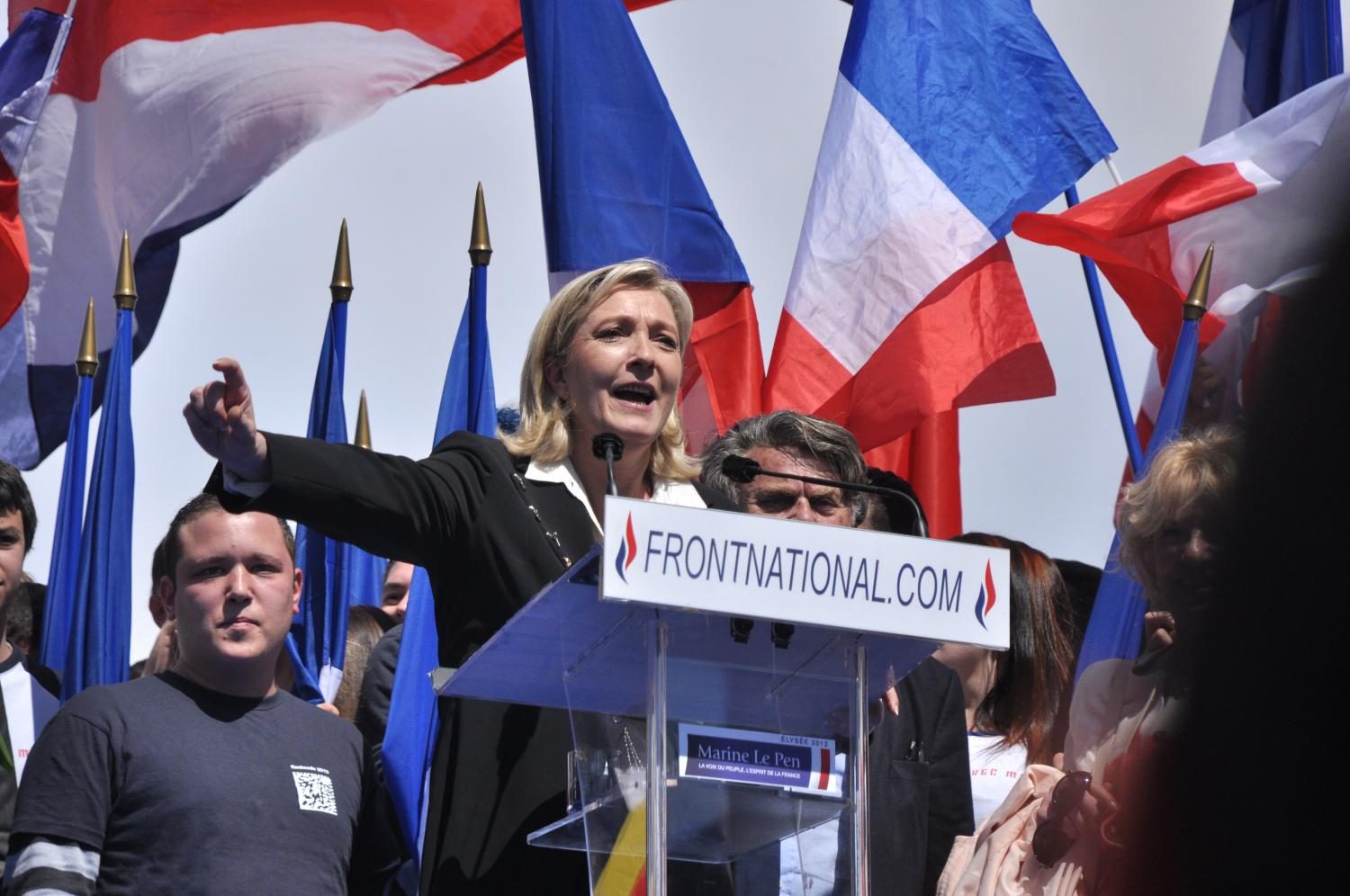The Rise of the Ultranationalist Right
Around the world, ultranationalist right groups are making their voices heard. From the rise of Rodrigo Duterte in the Philippines, to PEGIDA in Germany, these groups could have disastrous consequences for society and the world.
Why?
Vladimir Putin, in the last decade, has returned the old Soviet policy of interfering in the domestic politics of other countries. In 2015, the first government-sponsored International Russian Conservative Forum gathered representatives of fringe right-wing political organizations in Europe and the United States in St. Petersburg. This strongly signaled the intentions of the Russian government. By supporting fringe opposition parties, he hopes to destabilize the democratic institutions of these nations. Accusations of election meddling have been made in almost all major NATO countries.
The possibility of foul play from Russia has become alarmingly real in the US and France, especially. Marine LePen, leader of the nationalist French Front Nationale, has famously lauded Vladimir Putin. “I would envisage lifting the sanctions quite quickly,” she said, speaking of what she would do about western sanctions on Russia over the annexation of Crimea. This comes, of course, after personally meeting with Putin. In 2014 LePen’s party secured €9m from the First Czech Russian Bank, a bank with famously close ties to the Kremlin. An investigation into Russian collusion with the Trump campaign is currently underway. And, as more developments come out, it’s looking more and more damning for both parties.
This can’t all be chalked up to foreign interference. The current swell in populism is also a matter of circumstance, and, in many cases, the fault of every government. Economic stagnation, and a lack of motivation to change it, has driven rural Americans to feel left behind. The fact that the urban elite have focused on seemingly frivolous issues hasn’t helped this. Immigration has also been a major point of contention. The Middle Eastern Migrant crisis has created a sense of cultural loss for many Europeans. The idea that immigrants will dilute and drown out a home country’s culture has given way to the rise of groups like PEGIDA. In the US, this has manifested in the form of a border wall that President Trump promised would be paid for by Mexico.
Mexico will pay for the wall!
— Donald J. Trump (@realDonaldTrump) September 1, 2016
The Effects
The geopolitical effects this are extremely alarming. A takeover of western governments by right wing reactionaries could completely upend the current world order. Although Marine LePen lost the election, she has left her mark on French politics. Her promises of a French exit of the EU, or Frexit, were met with a positive response by most of her supporters. A Frexit would be disastrous for the EU, where the Union could begin hemorrhaging member states in the face of economic uncertainty. This would also severely weaken NATO, further undermining American hegemony.
Discriminatory sentiments have been building for a decade. In the Netherlands, in 2010, municipal anti-discriminatory bureaus received 401 complaints on the ground of religion. And, in a field study conducted by Amnesty International involving 20 large French companies, many managers cited the use of a headscarf as a major concern. All countries employ nationalism in one form or another. It is necessary to maintain a sense of national identity and cohesion. But this last decade has seen a change from a civic form of nationalism to a much more volatile form of nationalism. Blut-und-Boden, or Blood and Soil, nationalism has begun to replace civic nationalism. This phrase can trace its roots back to the intensely nationalistic German unification. While civic nationalism focuses on the idea of one people, Blood and Soil nationalism focuses on ethnicity. In other words, where civic nationalism is inclusive, Blood and Soil nationalism is exclusive.
A political balance must be found. There is no permanent solution to radical populism, but for the political pendulum to swing in the complete opposite direction would be just as bad, if not worse, than our current trajectory. Efforts should be made to dampen populism, rather than eradicate it. For example, PEGIDA has seen sizable counter protests at every one of it’s demonstrations. In many cases, the counter protesters have outnumbered the PEGIDA supporters. Prominent figures, such as Pope Francis, have also taken a stance against radical populism by declaring their solidarity with immigrants. The most important point to be made here, though, is that populism is irrational. In most cases, it is motivated by fear and ego. By organizing to express their discontent with nationalist parties, expressing solidarity with migrants, and trying to proliferate real news and real facts, people can act as a voice of reason to drag the political pendulum back towards equilibrium. There is a very real possibility, though, that there is no solution. The last time the world saw such a radical surge in populism, it took two world wars to be dampened again.

I'm Jake Neuffer, the 2018-2019 Outlook Editor in Chief. I try to write about politics, international relations, and culture whenever I can. I write about...





